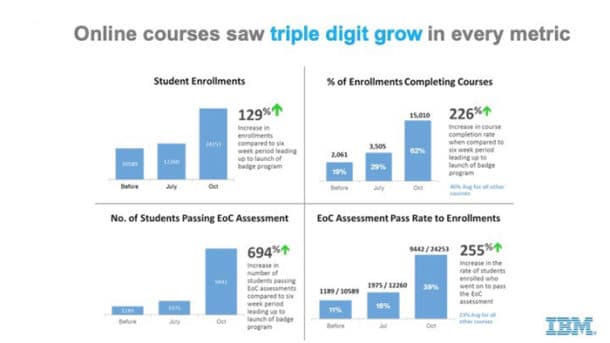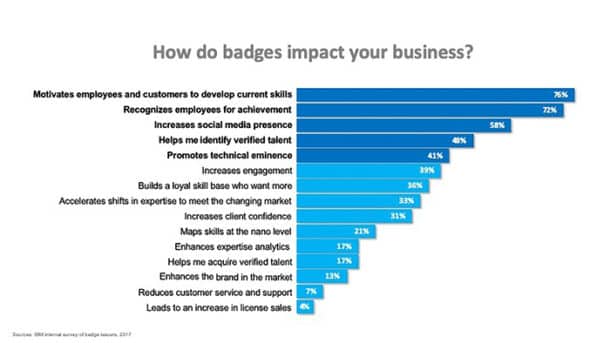I was first introduced to “badging” a number of years ago when organisations started to develop their gamification strategies. In those early days, badges tended to be awarded to employees as part of a fun competitive environment designed to evoke our competitiveness and pitch ourselves against our colleagues or rival teams. Back then I certainly didn’t give a lot of thought as to whether digital badging could be a solution that could meet specific business needs.
As time evolved, I started to work with organisations with regulatory or process compliance requirements, so the awarding of badges became more synonymous with certification and the completion of mandatory training rather than the badges earned in an organisation’s LMS league tables.
Many organisations struggle to maintain the effectiveness of their certification programs or their gamification strategies because they don’t succeed in effecting cultural change. Employees see such learning as something extra they have to do on top of their jobs, a chore almost, rather than create the change in culture to a state where workforces welcome a mindset of “this is how we operate now”. So, I was fascinated to hear that some organisations would again start to appeal to our competitive streaks and use digital badges to drive engagement.
How IBM Addressed Engagement
One such organisation was IBM, and I noticed recently that David Lesser – the senior executive of strategic growth initiatives for IBM’s Training & Skills program published some of the amazing results the IBM Digital Badge Program achieved in a very short space of time and then managed to maintain over a prolonged period thereby achieving a change in culture that has seen significant performance improvements across their business and their Channel Partner Networks.
The IBM Digital Badge Program was launched as a pilot for online learning in the spring of 2015. Within weeks IBM started to see some pretty astonishing results. Student enrollments increased by 129% and the percentage of enrollees who actually completed courses increased by 226%. Student numbers passing the end-of-course (EoC) exam increased by a staggering 694% compared to the six-week period leading up to the introduction of digital badges. IBM stressed that there were no other contributing factors to this success, like promotions or announcements from IBM executives which makes the level of improvement all the more impressive.

Increased Engagement
IBM’s HR department found a correlation between badges and engagement. Employees who earn digital badges show higher engagement scores than employees who do not. Among badge recipients, 87% said they are more engaged because of the digital badge program.
So, pretty remarkable stuff, I think we’d all agree. Most organisation’s L&D teams would be delighted with those numbers, but if you’ve worked in Learning and Performance Improvement long enough, you know that all of that front-end activity is only part of the story. Unless you spend the time, money and effort analysing how this great engagement equates to tangible improvements in individual, collective and business performance then how do you know it’s worked?
Luckily IBM did just that, and below is a brief snapshot of some of their findings:

Increased Sales
IBM found a correlation between sales and digital badges. Technical sales professionals who have earned digital badges are more likely to achieve sales quotas than employees who have not earned badges.
Increased Lead Generation
Digital badges can also create leads for products. When IBM introduced Digital Badges to an online training site with links to product downloads, those downloads increased by 64%, showing training (with incentives to complete the activities) can actually create leads for products.
Increased Skills for the Company
A survey of IBM business units found that 76% said digital badges motivate employees and customers to develop current skills. One-third said digital badges accelerate shifts in expertise to meet the changing market.
Don’t miss out on the chance to work with a training partner who can help take your program to the next level. Contact us today to learn more about our services and how Wahoo Learning can help you achieve your training goals.










